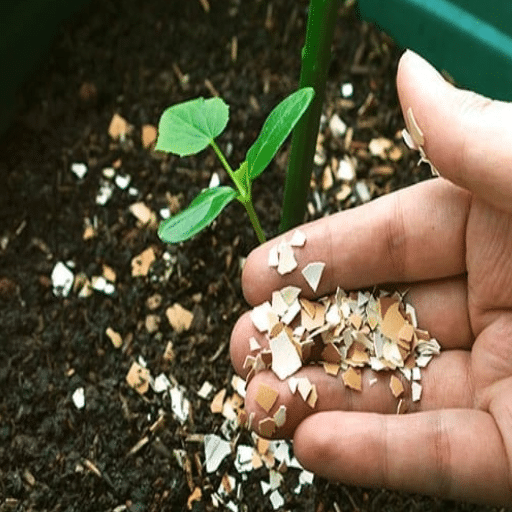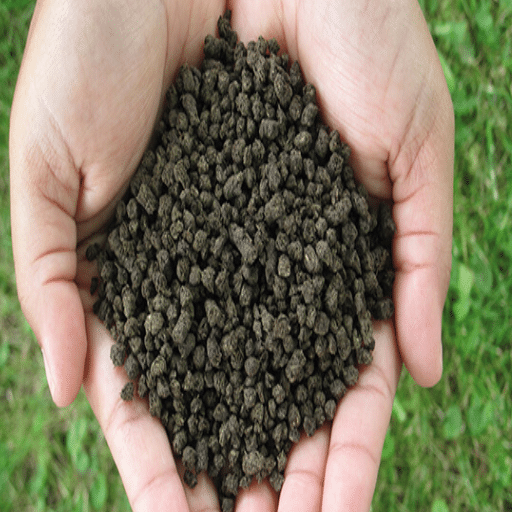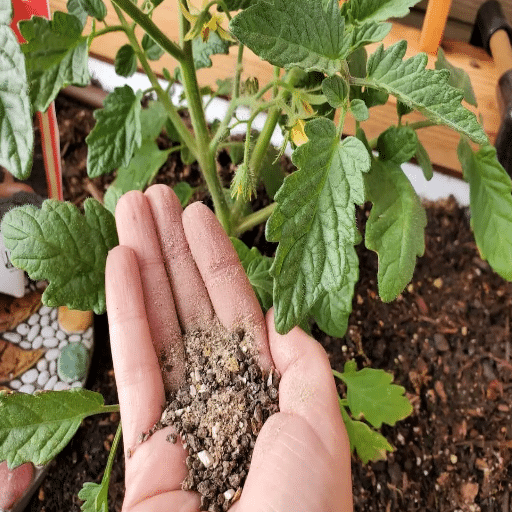In gardening aficionados and sustainability advocates alike, organic fertilizer is the secret to building strong plants while being environmentally conscious. Unlike synthetic fertilizers, organic fertilizers incorporate natural substances such as compost, manure, and plant residues to provide comprehensive soil treatment while supporting biodiversity. This guide is a valuable resource for both professional gardeners and newbie green thumbs who want to learn about the transformative change that organic fertilizers can bring to their approach to plant care while contributing to planetary health.
Benefits of Using Organic Fertilizers

Improving Soil Health
Organic fertilizers promote soil health by nurturing its natural dynamics. Unlike synthetic alternatives, organic fertilizers derive from natural sources, including essential nutrients from compost, manure, and bone meal. These nutrients are released gradually as organic matter decomposes, providing continuous plant nutrition and preventing nutrient leaching.
🌱 Soil Structure Enhancement
Improves organic matter content, promoting soil aeration and water retention for optimal plant growth conditions.
🦠 Microbial Life Support
Promotes beneficial microorganisms that assist in natural nutrient cycling and disease suppression.
🛡️ Erosion Prevention
Improves soil strength and fertility while providing natural defenses against erosion over time.
Promoting Sustainable Farming Practices
Crop rotation is an essential method for sustaining farming systems through nutrient buildup, increased soil fertility, improved crop yields, and reduced reliance on synthetic inputs. This practice involves alternating different crops across seasons to:
- Break pest and disease cycles – Minimizing need for chemical control
- Enhance nitrogen fixation – Legume crops naturally enrich soil fertility
- Improve soil structure – Different root systems aerate soil and reduce compaction
- Prevent nutrient depletion – Various plants draw different mineral sets, maintaining balance
- Increase climate resilience – Research shows improved adaptation to changing conditions
Supporting Long-Term Plant Growth
Sustainable long-term growth focuses on three critical areas:
🌿 Soil Health Management
Quality soil rich in nutrients and well-structured supports robust root systems. Key practices include adding organic matter, preventing compaction, and maintaining proper pH levels. According to FAO research, cover crops combined with no-till measures effectively prevent erosion and increase organic carbon.
💧 Water Efficiency
Modern precision irrigation technologies enhance water-use efficiency. Methods include drip irrigation systems, water reservoirs, and rainwater harvesting to maintain consistent soil moisture while reducing waste.
🐛 Integrated Pest Management (IPM)
Balanced approach using biological, cultural, and mechanical controls to manage pest populations while protecting beneficial insects and promoting ecosystem conservation.
Organic vs. Synthetic Fertilizers Comparison

| Aspect | Organic Fertilizers | Synthetic Fertilizers |
|---|---|---|
| Nutrient Release | Slow, gradual decomposition process | Quick, immediate availability |
| Soil Impact | Enhances structure and microbial activity | May degrade soil over prolonged use |
| Initial Cost | Higher due to production complexity | Lower, more commercially available |
| Long-term Value | Fewer applications are needed over time | Recurring applications required |
| Environmental Impact | Minimal runoff, supports biodiversity | Risk of nutrient runoff and water contamination |
Environmental and Health Considerations
Synthetic agricultural inputs pose significant environmental and health risks:
- Water Contamination: Runoff triggers eutrophication, reducing oxygen levels in aquatic ecosystems
- Soil Pollution: Toxic residues compromise natural microbiota and long-term fertility
- Health Risks: Pesticide residues linked to carcinogenic, neurotoxic, and endocrine disruption effects
- Ecological Damage: Chemical drift affects non-target areas, disrupting ecosystem balance
Environmental Impact of Organic Fertilizers
Reducing Pollution and Chemical Runoff
Key Finding: Research shows that organic fertilization methods can achieve up to 50% reduction in nitrate leaching compared to synthetic alternatives, significantly improving water quality.
Organic fertilizers prevent pollution through several mechanisms:
- Synchronized nutrient release with plant absorption patterns
- Improved soil structure and water retention capacity
- Enhanced infiltration reduces surface runoff
- Natural nutrient cycling through maintained microbial biodiversity
- Reduced greenhouse gases from manufacturing processes
Enhancing Biodiversity in Gardens
Biodiversity enhancement creates resilient garden ecosystems through:
🌺 Native Plant Integration
Native species support local climate adaptation and require fewer external inputs while fostering greater biodiversity levels.
🏡 Habitat Diversity
Ponds, hedges, wildflower meadows, and log piles provide specialized environments for various species.
🐝 Pollinator Support
Ground-level native wildflowers offer shelter and food for essential pollinators like bees and butterflies.
Contributions to Soil Microbial Health
Healthy soil microbial communities are crucial for productive ecosystem functions. Here are five key contributions:
| Practice | Benefit | Impact Measurement |
|---|---|---|
| Organic Matter Addition | Provides nutrients for microbial growth | Up to 30% increase in microbial biomass |
| Chemical Input Reduction | Preserves microbial community balance | Prevents 40% biodiversity loss from chemicals |
| Crop Rotation & Diversity | Varied root exudates feed different microbes | 50% increase in beneficial microbe populations |
| No-till Practices | Maintains natural soil structure | 60% greater microbial activity vs. conventional tilling |
| Bioinoculant Use | Restores beneficial microorganisms | 15-20% increase in crop yields |
Choosing the Right Organic Fertilizer

Selection Based on Plant Types
Different plants have varying nutritional requirements throughout their growth cycles:
🍅 Heavy Feeders
Examples: Tomatoes, peppers
Needs: High nitrogen, phosphorus, and potassium
Fertilizers: Rich compost, aged manure
🌿 Light Feeders
Examples: Herbs, leafy greens
Needs: Balanced, moderate nutrients
Fertilizers: Diluted fish emulsion, light compost
🌱 Seedlings
Focus: Root development
Needs: High phosphorus levels
Fertilizers: Bone meal, fish-based amendments
Tips for Different Farm Scales
Small-Scale Farmers
- Use simple soil testing kits and portable pH meters
- Focus on cost-effective soil health assessments
- Implement basic organic matter additions
- Utilize local composting resources
Large-Scale Farmers
- Employ precision soil mapping with GPS technology
- Use GIS combined with soil data for spatial analysis
- Conduct regular laboratory soil testing
- Implement data-driven fertilization strategies
Popular Organic Fertilizer Options

Blood Meal and Bone Meal
| Fertilizer Type | Primary Nutrients | Nutrient Content | Best Applications |
|---|---|---|---|
| Blood Meal | Nitrogen | 12-15% nitrogen | Leafy vegetables, nitrogen-deficient soils |
| Bone Meal | Phosphorus, Calcium | 15-26% phosphorus | Root vegetables, flowering plants, fruit trees |
Fish-Based Fertilizers
🐟 Fish Fertilizer (Liquid)
Contains balanced NPK with trace minerals and amino acids. Provides slow nutrient release and promotes rhizosphere microbial activity.
🐟 Fish Meal (Granular)
High-protein soil amendment with slow decomposition rates, ensuring long-term nutrient availability and improved soil organic matter.
Specialty Organic Products
- Kelp Meal: Rich in potassium, trace minerals, and natural growth hormones (cytokinins, auxins)
- Alfalfa Meal: Balanced NPK with triacontanol, a natural growth regulator
- Bat Guano: High nitrogen content for leafy growth plus essential trace minerals
- Composted Manure: Well-rounded nutrient profile with excellent soil conditioning properties
Frequently Asked Questions
A: An organic fertilizer is a natural plant food prepared from organic materials such as animal waste, plant residues, and minerals. These fertilizers improve soil quality while supplying essential nutrients for healthy plant growth.
A: Organic fertilizers enrich garden soil with nutrients while fostering beneficial organisms, resulting in healthier plants, better yields, and reduced risk of fertilizer burn compared to synthetic alternatives.
A: Yes, organic fertilizers are generally safe for plants. Their lower nutrient concentrations and slow-release mechanism prevent root burning while providing sustained nutrition over extended periods.
A: Popular options include feather meal, blood meal, bone meal, and worm castings. Each provides specific nutrients – nitrogen, phosphorus, and potassium – essential for optimal plant growth.
A: They enhance moisture and nutrient retention while adding organic matter that improves aeration and stimulates beneficial microorganisms, helping plants access available nutrients more effectively.
A: Absolutely! Organic fertilizers are ideal for vegetable gardens, providing nutrients naturally without chemical dangers, ensuring healthy and safe food production.
A: While generally safe, poorly processed organic fertilizers may contain pathogens or create nutrient imbalances. Purchase certified organic products to minimize these risks.
A: Consider your turfgrass’s specific nutrient needs and select products with balanced NPK ratios. Look for natural ingredients like kelp or fish meal that nourish the soil and promote healthy grass growth.
A: Humic acid enhances soil nutrient uptake, improves soil structure, and increases microbial activity. It helps plants absorb nutrients more efficiently while boosting overall soil fertility.
A: Dilute according to package directions and apply throughout the growing season. Liquid fertilizers provide quick nutrient boosts and are especially useful for plants needing immediate soil nutrient access.
References
- Wiley Online Library: Growing use and impacts of chemical fertilizers and assessing alternative organic fertilizer sources in Ethiopia
- Solverchem Books: The principal role of organic fertilizer on soil properties and agricultural productivity – a review
- Plant Nutrition and Fertilizer Science: Organic fertilizer resources and utilization in China
- Taylor & Francis Online: Chemical characterization of commercial organic fertilizers
- Academia.edu: Analysis of organic agricultural waste usage for fertilizer production







